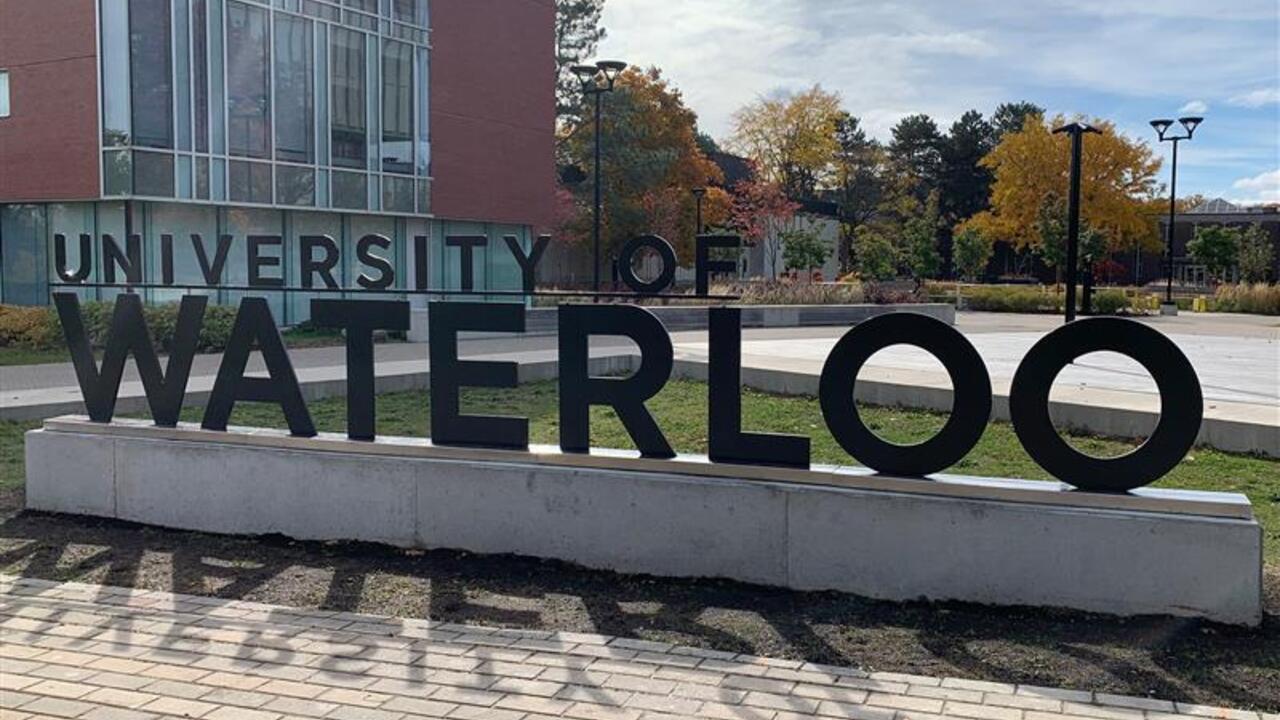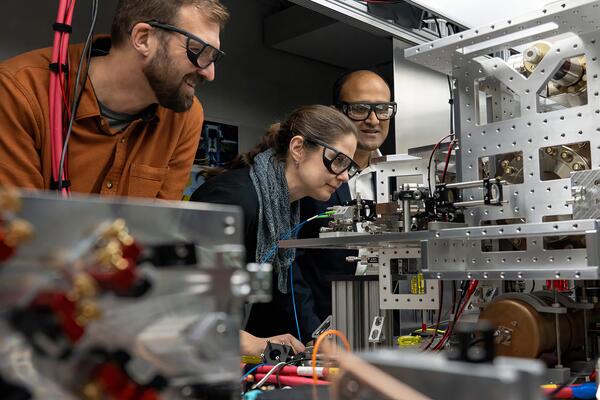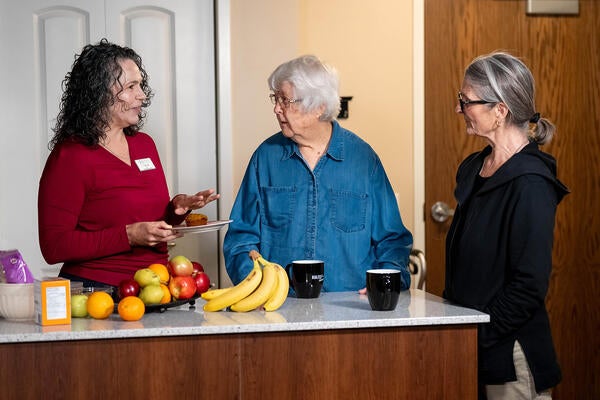
Waterloo hosts international conference on future of quantum cryptography
Researchers and students from around the globe gather this week at the University of Waterloo’s Institute for Quantum Computing.

Researchers and students from around the globe gather this week at the University of Waterloo’s Institute for Quantum Computing.
By Media RelationsWATERLOO, Ont. (Friday, August 2, 2013) – Researchers and students from around the globe gather this week at the University of Waterloo’s Institute for Quantum Computing to discuss progress in the field of quantum cryptography.
Today, cryptographic schemes keep everyday transactions on the Internet secure. In the not-so-distant future, quantum computers will be able to break even the most secure schemes easily. But the same technology that can break today’s cryptography, can add unbreakable key exchange and other tools to tomorrow’s cyber security arsenal.
“We need to transition the current cryptographic toolbox to one that will protect against emerging quantum technologies, one that is quantum-safe,” said Professor Michele Mosca, deputy director of the Institute for Quantum Computing. “Quantum cryptography will be a critical part of protecting against the cyber attacks of the future.”
Over the last decade, research has shown significant progress in both the theoretical understanding and experimental approaches in quantum cryptography.
The third annual QCrypt conference includes invited talks, tutorials, industry sessions and an exhibit where research groups and several companies showcase their products and experimental prototypes. IQC researchers will demonstrate their approaches and companies such as IDQuantique from Switzerland and Anhui Asky Quantum Technology from China will have their products on display.
“Researchers have the opportunity to hear speakers such as Nobel laureate Sir Anthony Leggett and Scott Aaronson of MIT, the author of the blog Shtetl-Optimized,” said Vadim Makarov, research assistant professor at IQC and chair of the local organizing committee of this year’s conference. “We also have Jane Nordholt of Los Alamos National Lab who has demonstrated how a pocket-sized quantum key distribution (QKD) transmitter can secure signals sent over public data networks to control smart electricity grids.”
The QCrypt conference also includes a public lecture, Quantum computing and the entanglement frontier, Tuesday, August 6 at 7:00 p.m. by John Preskill the Richard P Feynman Professor of Theoretical Physics at Caltech and one of the founders of modern quantum information research.
More information about the conference, including the full schedule, can be found on the QCrypt website.
QCrypt is an annual conference for students and researchers working on all aspects of quantum cryptography. The steering committee and programme committee select speakers that best represent the previous year’s results in the field. Next year’s conference will take place in Paris, September 1-5, 2014.
In just half a century, the University of Waterloo, located at the heart of Canada's technology hub, has become one of Canada's leading comprehensive universities with 35,000 full- and part-time students in undergraduate and graduate programs. Waterloo, as home to the world's largest post-secondary co-operative education program, embraces its connections to the world and encourages enterprising partnerships in learning, research and discovery. In the next decade, the university is committed to building a better future for Canada and the world by championing innovation and collaboration to create solutions relevant to the needs of today and tomorrow. For more information about Waterloo, please visit www.uwaterloo.ca.
The Institute for Quantum Computing (IQC) is a multidisciplinary scientific research institute at the University of Waterloo. Our research focuses on harnessing the quantum laws of nature to discover and develop powerful new technologies that will transform information technology and drive the 21st century economy. IQC research bridges theory and experiments in quantum computing, quantum communication and other quantum devices through the collaboration of over 200 computer scientists, engineers, mathematicians, physical scientists and students. Established in 2002, IQC also offers graduate and post-graduate programs and educational outreach activities that inspire scientific discovery in the realm of quantum mechanics.
-30-
Media Contacts
Nick Manning
University of Waterloo
519-888-4451
nmanning@uwaterloo.ca
www.uwaterloo.ca/news
@uWaterlooNews
Tobi Day-Hamilton
Institute for Quantum Computing
519-888-4567 x 38933
tlday@uwaterloo.ca
www.iqc.a
@QuantumIQC
Attention broadcasters: Waterloo has facilities to provide broadcast quality audio and video feeds with a double-ender studio. Please contact Nick Manning on 519-888-4451 or 226-929-7627 for more information.

Read more
An ambitious research collaboration with Habitat for Humanity is reimagining home ownership across Waterloo Region and Canada

Read more
And a new model for how quantum research is shared — opening doors for the next generation of scientists and entrepreneurs

Read more
Dr. Heather Keller discusses the need to transform mealtimes in Canada’s long-term care homes from a service to a meaningful form of care
The University of Waterloo acknowledges that much of our work takes place on the traditional territory of the Neutral, Anishinaabeg, and Haudenosaunee peoples. Our main campus is situated on the Haldimand Tract, the land granted to the Six Nations that includes six miles on each side of the Grand River. Our active work toward reconciliation takes place across our campuses through research, learning, teaching, and community building, and is co-ordinated within the Office of Indigenous Relations.